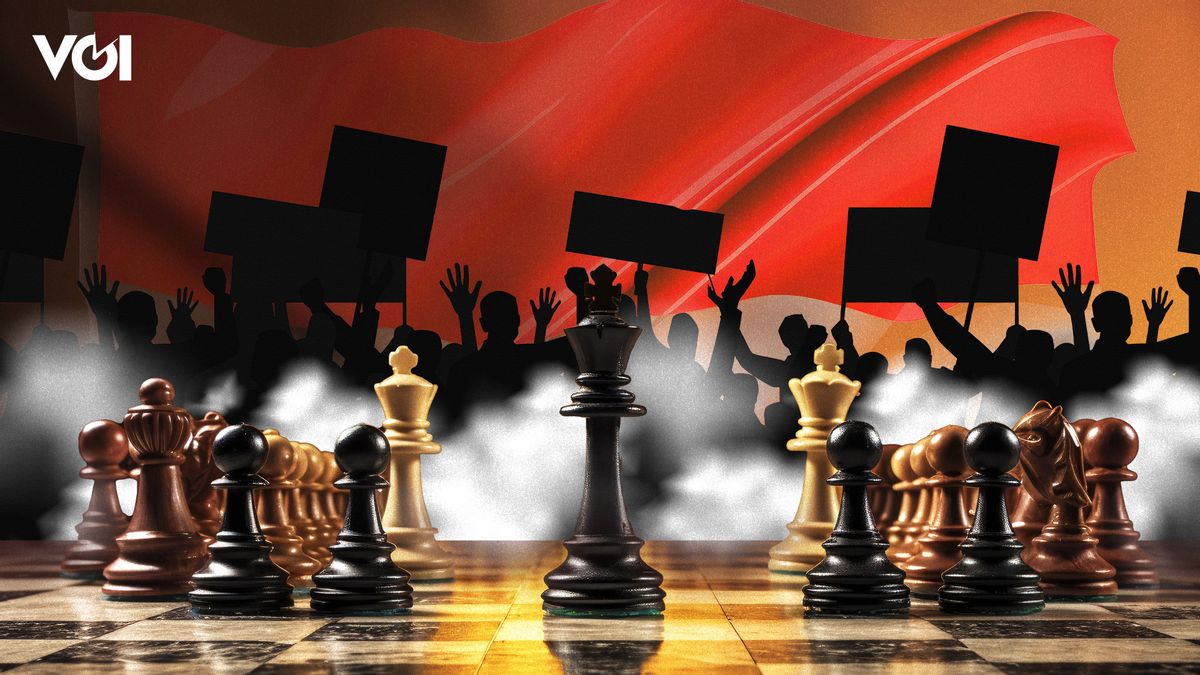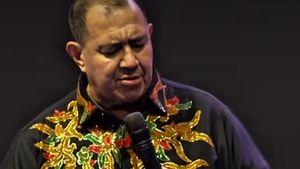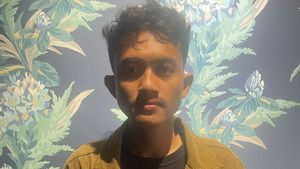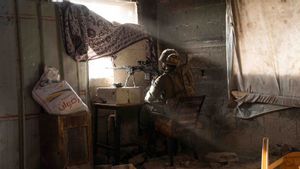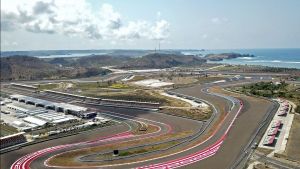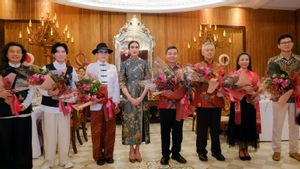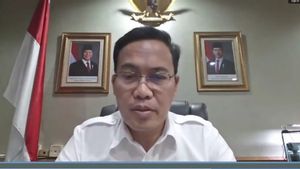JAKARTA - Seventeen years in power, the Chilean people were finally free from military rule (1973-1990) led by dictator Augusto Pinochet. Authoritarian military power was defeated by adherents of democraticism. At that time the party identification rate in the country showed its highest level. Based on data from Centro de Estudios Publicos (CEP), in the early 1990s, nearly four of every five adults in Chile identified themselves with a political party.
But after that in 2016, the political reality in the country in South America was recorded at only one-fifth of Chileans who adhered to politics. And this is the lowest figure in the CEP survey, party identification has decreased by more than 60 percentage points during this period.
Perhaps the drastic decline is one of the most dominant explanations for the erosion of party systems in the country that adhere to an ideological polarization system. Where the overall level of alignment among the community is closely related to the extent to which political parties have different ideological spectra. Although ideological polarization allows the development of partisan entanglement (Bernschier, 2019; Lupu, 2015b), ideological convergence erodes such entanglement (Lupu, 2013, 2014, 2016).
In an article he wrote in the journal Cultural Studies of the Americas (2004), cultural expert Nelly Richards argued that the authoritarian period brought about two different political identities and antagonists: supporters of the military dictatorship and supporters of democracy. It was clearly seen through the 1988 vote that marked the transition to democracy and was embodied in the two main political coalitions (Consertation and Alliance), these two different political identities played the main driver of political conflict during the transition to democracy.
SEE ALSO:
"My directive is based on previous research showing that since the restoration of democracy, political competition in Chile has been largely structured by political divisions between supporters of the military dictatorship (19731990) and supporters of democracy (Bargsted and Somma, 2016 Huneeus and Maldonado, 2003; Tironi et al., 2001," said Nelly Richards, quoted from the journal Cultural Studies of the Americas (2004).
Nelly also revealed that the post-political transition period in Chile produced residues resulting from scars or remnants of wounds that still exist in society, be they ideological relics, habits, and sentiments. And he emphasized that the residue has negative properties as well as residuals in the chemical process.
From the divisions that occurred in Chile, did the elites in Indonesia not want to learn and continue to sacrifice the people at the grassroots to keep fighting with the theme of identity politics? Where do we all realize that in 2019 the integrity and integrity of the nation was almost threatened by the terms two tadpole groups, kadrun, buzzerp and kampret. Ironically, these terms are part of the residue in Indonesia after the 2019 presidential election but are still trying to be maintained to this day. While the elites have united and supported each other, polarization and identity politics are still trying to be maintained?
Analysts And Identity Political Theory
Identity politics is a new concept in the study of political science. Identity politics has other names for biopoliticals that carry political differences. Biopoliticals are based on differences arising from body differences. These two political concepts began to emerge after being studied and stimulated at an international meeting of the International Political Institute in Vienna in 1994.
The meeting resulted in a conception about the basics of identity politics practice and made it a study in the field of political science. Agnes Haller takes the definition of identity politics as a concept and a political movement whose attention is focused on differences (difference) as the main political category.
Politics of differences is a new name from identity politics; racism (race thinking), biopheminimism and ethnic disputes occupy places that are forbidden by old big ideas. Various new forms of intolerance, violent practices also emerged.
In the situation of identity and difference entities, differences politics is very fertile in multicultural and multiethnic state or society situations. In this framework, interactive relations between different groups, especially ethnic groups, must establish an ethical framework, in this case, is tolerant.
Political tolerance is only possible in a democratic state political atmosphere. Because political tolerance is strongly influenced by the prevailing system, structure, and political atmosphere. John Sullivan in Hefner (2007) who analyzed the concepts and application of political tolerance in three different countries: the United States, New Zealand, and Israel, found varying levels of tolerance intensity.
This is influenced by factors, including the level of economic prosperity, structure and political system, political psychological factors. The concept of identity-relevant politics to implement, is at least discussed considering the political map of the future, which develops towards diverse politics, is more concerned with humanity and ethics.
In line with Mulgan, Walter Lippmann in▁mengenal and Riekmann, Biopolitic, Hefner (2007) in his public philosophy encouraged democratic politicians to uphold political morality. This is because in democratic countries even though the disease from the openness of freedom will always emerge, so there needs to be an order of ethics and morality of democracy.
Klaus Von Beyme in Hefner (2007) analyzed the character of identity movements in several stages of development, from the premodern stage to the post-modern stage. The fundamental divisions, ethnic groups and nationalities give rise to a comprehensive socio-political movement. In this case, ideological mobilization is initiated by the leaders. The goal is the confiscation and seizure of power from a ruler to a new ruler.
At the modern stage, the movement arises with a conditional approach, brokenness requires sources to be mobilized. There is a balance of mobilization from above and bottom participation, the role of leaders is no longer dominant and the ultimate goal is the division of power. Then in the development of modern posts, the emergence of these movements stems from their own dynamics, protests arise over various kinds of individual opportunities, no one group or fraction is dominant.
The pattern of action and activities is based on self-awareness which is autonomous as the final goal. The emergence of ethnic politics begins with the growing awareness that identifies them into certain ethnic groups or groups.
Polarization Notes In Indonesia
Australian media researcher Nadonal University, Ross Tapsell on the New Mandala page, gave a question that needs to be answered with full awareness by all Indonesian people today. This paper was published on March 22, 2019 entitled The polarization paradox in Indonesia's 2019 elections. In the 2019 presidential election, the two presidential candidates, Jokowi, as incumbent and Prabowo, both have 'air forces' in charge of creating, reducing or even producing black campaigns in cyberspace.
Even in the 2024 presidential election, Prabowo was supported by Jokowi and succeeded in becoming president-elect along with his partner. But the current reality seems to rule out the residual polarization experienced by the community, especially at the grassroots.
Prabowo-Sandi supporters are generally motivated by Islamic-Nasionalis groups, while Jokowi Ma'ruf Amien supporters generally have national backgrounds. During the campaign period, both parties were quite fierce in fighting for their respective candidates.
In his political communication, the Nationalist Sekular group claims that he is the most Pancasilaist and defender of the Republic of Indonesia at the same time making fun of opponents with the nickname Kadrun alias desert lizard and kampret, something that generates anger as well as creates a line of social dividers that is increasingly evident in the community. In response, Prabowo-Sandi's support group dubbed his opponent Cebong.
The recidu resulting from racist hate speech from the two Cebong groups, Kampret will certainly always be history in this nation. This has not been added to the deaths of demonstrators that occurred in the Bawaslu building in the May 21-22 2019 action which protested the results of the 2019 Pilres. Their deaths seemed to have no price in the eyes of the country's elites.
The Beginning Of The Polarization Term
Fried cebong and kampret are so hard that it makes many people very concerned. Anxiety about the integrity of the unitary and national unity countries that are hard to build by the founding fathers. Sadly, almost most politicians are too in power and tend to silence the threat of national danger.
The term tadpole or tadpole identified with supporters from Jokowi appeared in May 2015 and there were more and more conversations about Jokowi and his son Gibran in August 2015.
The use of the term cebong long before the news that President Jokowi released a king in the Bogor Palace pool on January 3, 2016. This incident is often considered as an inspiration for the use of tadpoles as Jokowi's supporters.
And the use of kampret to refer to Prabowo supporters has been used since October 2015. As a form of reply, a tadpole call is addressed to Jokowi's supporters. However, it is only popular that the term kampret is in mid-2018.
The English, Chinese, Japanese, Arabic, and French versions are automatically generated by the AI. So there may still be inaccuracies in translating, please always see Indonesian as our main language. (system supported by DigitalSiber.id)
